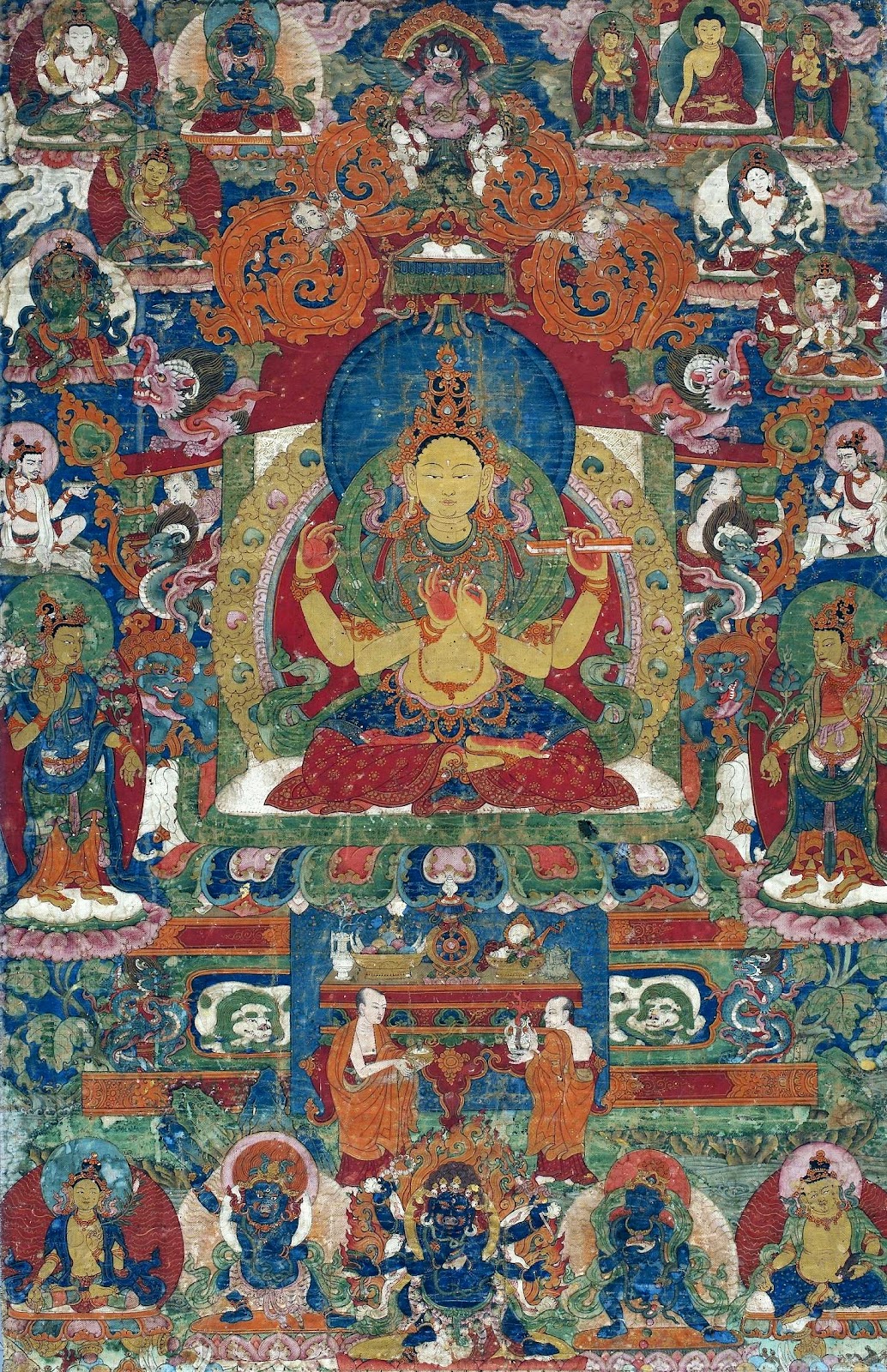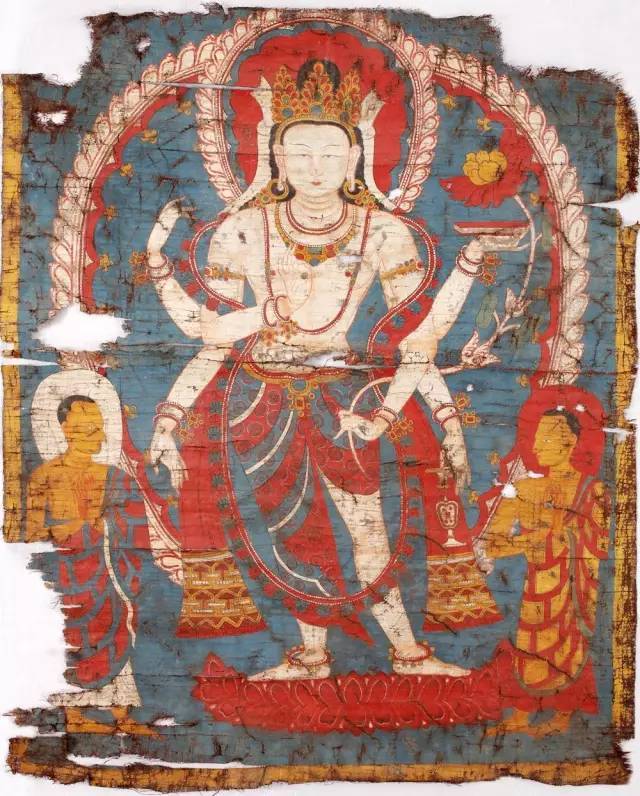| A feminine personification of Wisdom, or Understanding, is found in Proverbs, a Book of the Bible. Here are excerpts from the King James Version :
1:20 Wisdom crieth without; she uttereth her voice in the streets:
1:21 She crieth in the chief place of concourse, in the openings of the gates: in the city she uttereth her words, saying,
1:22 How long, ye simple ones, will ye love simplicity? and the scorners delight in their scorning, and fools hate knowledge?
1:23 Turn you at my reproof: behold, I will pour out my spirit unto you, I will make known my words unto you
…….
8:1 Doth not wisdom cry? and understanding put forth her voice?
8:2 She standeth in the top of high places, by the way in the places of the paths. (also translated as “at the meeting of the roads“[BBE] or “at the crossroads“[NAB].)
8:3 She crieth at the gates, at the entry of the city, at the coming in at the doors.
8:4 Unto you, O men, I call; and my voice is to the sons of man.
8:5 O ye simple, understand wisdom: and, ye fools, be ye of an understanding heart.
8:6 Hear; for I will speak of excellent things; and the opening of my lips shall be right things.
8:7 For my mouth shall speak truth; and wickedness is an abomination to my lips.
8:8 All the words of my mouth are in righteousness; there is nothing froward or perverse in them.
8:9 They are all plain to him that understandeth, and right to them that find knowledge.
8:10 Receive my instruction, and not silver; and knowledge rather than choice gold.
8:11 For wisdom is better than rubies; and all the things that may be desired are not to be compared to it.
8:12 I wisdom dwell with prudence, and find out knowledge of witty inventions.
8:13 The fear of the LORD is to hate evil: pride, and arrogancy, and the evil way, and the froward mouth, do I hate.
8:14 Counsel is mine, and sound wisdom: I am understanding; I have strength.
8:15 By me kings reign, and princes decree justice.
8:16 By me princes rule, and nobles, even all the judges of the earth.
8:17 I love them that love me; and those that seek me early shall find me.
8:18 Riches and honour are with me; yea, durable riches and righteousness.
8:19 My fruit is better than gold, yea, than fine gold; and my revenue than choice silver.
8:20 I lead in the way of righteousness, in the midst of the paths of judgment:
8:21 That I may cause those that love me to inherit substance; and I will fill their treasures.
8:22 The LORD possessed me in the beginning of his way, before his works of old.
8:23 I was set up from everlasting, from the beginning, or ever the earth was.
8:24 When there were no depths, I was brought forth; when there were no fountains abounding with water.
8:25 Before the mountains were settled, before the hills was I brought forth:
8:26 While as yet he had not made the earth, nor the fields, nor the highest part of the dust of the world.
8:27 When he prepared the heavens, I was there: when he set a compass upon the face of the depth:
8:28 When he established the clouds above: when he strengthened the fountains of the deep:
8:29 When he gave to the sea his decree, that the waters should not pass his commandment: when he appointed the foundations of the earth:
8:30 Then I was by him, as one brought up with him: and I was daily his delight, rejoicing always before him;
8:31 Rejoicing in the habitable part of his earth; and my delights were with the sons of men.
8:32 Now therefore hearken unto me, O ye children: for blessed are they that keep my ways.
8:33 Hear instruction, and be wise, and refuse it not.
8:34 Blessed is the man that heareth me, watching daily at my gates, waiting at the posts of my doors.
8:35 For whoso findeth me findeth life, and shall obtain favour of the LORD.
8:36 But he that sinneth against me wrongeth his own soul: all they that hate me love death.
9:1 Wisdom hath builded her house, she hath hewn out her seven pillars:
9:2 She hath killed her beasts; she hath mingled her wine; she hath also furnished her table.
9:3 She hath sent forth her maidens: she crieth upon the highest places of the city,
9:4 Whoso is simple, let him turn in hither: as for him that wanteth understanding, she saith to him,
9:5 Come, eat of my bread, and drink of the wine which I have mingled.
9:6 Forsake the foolish, and live; and go in the way of understanding.
9:7 He that reproveth a scorner getteth to himself shame: and he that rebuketh a wicked man getteth himself a blot.
9:8 Reprove not a scorner, lest he hate thee: rebuke a wise man, and he will love thee.
9:9 Give instruction to a wise man, and he will be yet wiser: teach a just man, and he will increase in learning.
9:10 The fear of the LORD is the beginning of wisdom: and the knowledge of the holy is understanding.
9:11 For by me thy days shall be multiplied, and the years of thy life shall be increased.
9:12 If thou be wise, thou shalt be wise for thyself: but if thou scornest, thou alone shalt bear it.
9:13 A foolish woman is clamorous: she is simple, and knoweth nothing.
9:14 For she sitteth at the door of her house, on a seat in the high places of the city,
9:15 To call passengers who go right on their ways:
9:16 Whoso is simple, let him turn in hither: and as for him that wanteth understanding, she saith to him,
9:17 Stolen waters are sweet, and bread eaten in secret is pleasant.
9:18 But he knoweth not that the dead are there; and that her guests are in the depths of hell.
According to the above text, this Wisdom (Sophia) exists before the creation of heaven and earth. She is used by God to create everything in the universe, hence She is the Ultimate Truth within all manifestations of the universe. She is the wisdom, and also life, of all living beings. She leads living beings to Perfection by giving them Her bread and wine. Whoever eats Her bread and drinks Her wine will become wiser and live longer. |



